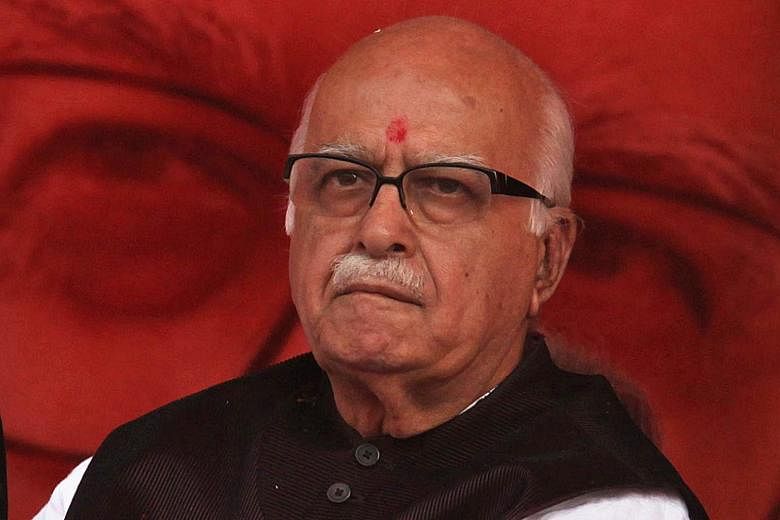NEW DELHI (BLOOMBERG) - A special court has acquitted senior leaders of the ruling Bharatiya Janata Party, including a former deputy prime minister, 28 years after a Hindu mob demolished a centuries-old mosque that triggered deadly riots, killing thousands, according to the Press Trust of India.
A special trial court in Lucknow, the capital of northern state of Uttar Pradesh, on Wednesday (Sept 30) acquitted former deputy prime minister Lal Krishna Advani, BJP parliamentarians Murli Manohar Joshi, Uma Bharti, and 29 other politicians and Hindu activists who were charged with criminal conspiracy, unlawful assembly and provoking riots.
Delivering his findings in state capital Lucknow, Judge Surendra Kumar Yadav said the demolition was not planned and was spontaneous. The verdict can be challenged in higher courts.
Once the face of the BJP's hardline Hindu nationalist agenda, Mr Advani led a sustained campaign for decades to build a temple replacing the Babri Mosque in Ayodhya, a town in the Hindi heartland state.
The 92-year-old and other senior leaders are no longer in the active decision-making process in BJP - which is now steered by Prime Minister Narendra Modi and his close aides.
The ruling will further deepen the religious polarisation in world's largest democracy.
In August last year, the Modi government ended seven decades of autonomy for the only Muslim-majority state of Jammu and Kashmir. In November, the country's top court handed the disputed land at Ayodhya to Hindu groups to build a temple, and in December the government brought in a citizenship law that discriminates against Muslims.
Protests and riots followed across the country between December and February. On the first anniversary of the decision on Jammu and Kashmir, Mr Modi this year laid the foundation stone for the temple in Ayodhya.
The top court's November verdict said the act of destruction of temple was calculated and against law, but did not pin charges, as it was deciding a civil dispute over ownership of land.
The criminal case went on separately.

